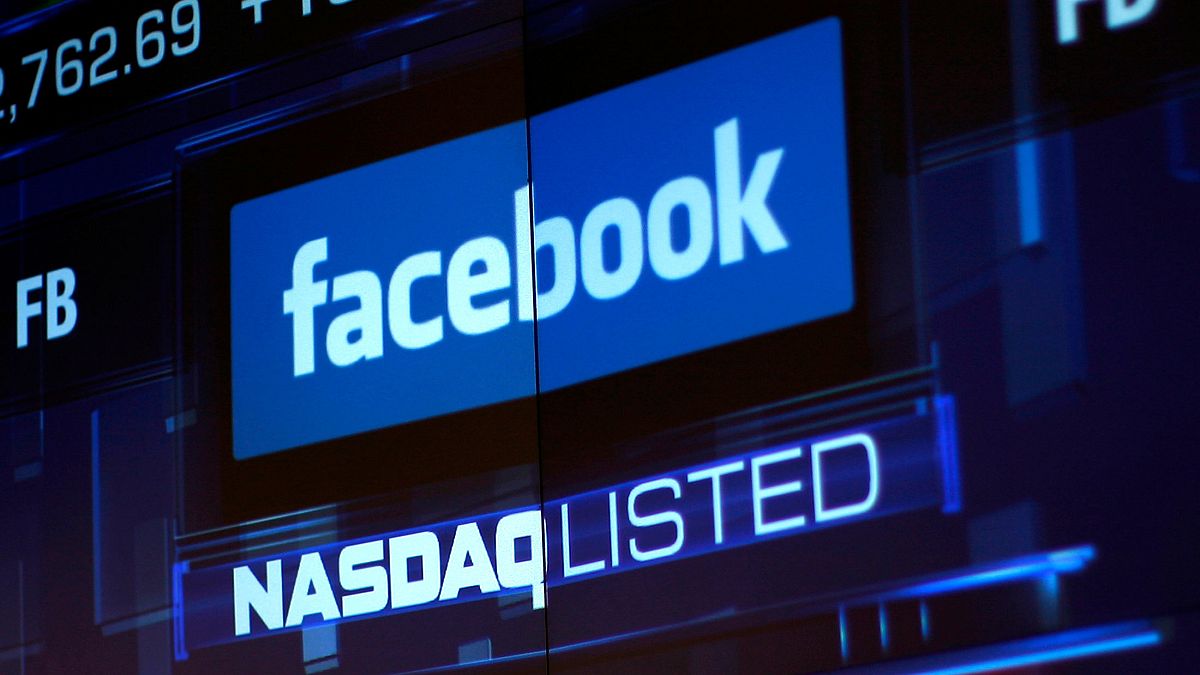Facebook's profit warning brought a record US stock market dive, but despite major challenges over privacy and fake news the social media giant remains... a giant.
Facebook’s stock collapse on Thursday was the biggest one-day drop in a company’s value in US stock market history, and sent the Nasdaq down more than one percent.
The social media giant took a hit of more than $118 billion (€101 billion), a fall of 19 percent, although it did bounce back later in the day.
The plunge came after Facebook forecast years of lower profit margins when announcing its 2018 second quarter figures for revenue, user growth and profits.
“We’re investing so much in security that it will significantly impact our profitability,” Mark Zuckerberg said. The CEO’s own fortune lost $15.4 billion (€13.2 billion) of its value.
Costs in this area rose by around a half compared to the same period last year. The company has been hiring more people and concentrating resources to improve privacy and data security, and increase policing of the site to tackle misinformation and election interference.
Privacy woes
The news is perhaps not surprising given the context. It follows two years of investigations and scandals.
The second quarter of 2018 was the first full accounting period following the exposure of the Cambridge Analytica scandal in March. The Observer revealed that data from millions of Facebook users had been inappropriately passed on to the political consultancy, which wanted to influence voters.
The company – which later admitted that even more users’ data had been released than first reported – suspended hundreds of apps as part of a subsequent investigation.
Most of the 87 million user profiles affected by the data breach scandal were in the US, but in Europe tighter rules on privacy have also had an impact. The EU’s new privacy law, the General Data Protection Regulation (GDPR), is thought to have contributed to a loss of three million Facebook users in Europe.
Fake news
Facebook increased spending in the wake of the 2016 US presidential election, which brought evidence of Russian meddling via social media. Late last year the company already issued a warning about profitability, and in April Zuckerberg admitted to Congress that the company had reacted slowly.
There are still indications that the company is struggling to respond to online manipulation. Some 1.3 billion fake profiles and pages have reportedly been disabled over the past year, yet complaints continue coming.
This week has seen more embarrassment with the publication of a series of ads sent out on Facebook during the UK’s EU referendum in 2016. Targeted at specific groups by the official pro-Brexit Vote Leave campaign and often contentious, they have been released to a committee of MPs investigating fake news.
Is this the start of Facebook’s demise?
No.
There are varying views concerning how serious Facebook’s situation is. There are suggestions that Facebook itself has been hinting at a slowdown for some time – but the markets failed to see it coming, hence their panic.
Despite the record stock price tumble, the tech giant still made $13.2 billion (€11.3 billion) in the second quarter of 2018, a year-on-year rise of over 40 percent. The number of active users globally was also up.
Facebook is still growing, only more slowly. Its profit warnings for the future have led to talk of a shift from “hyper-growth”… to just growth. It’s a slight exaggeration, but the question has been asked: “How can Facebook continue to grow when everyone is already using it?”.
In fact, it’s thought around a third of the world’s population is on Facebook. It still dominates the market, owning Instagram, WhatsApp and Messenger. Analysts expect the firm to invest more in these services, as it is obliged to increase security costs for its original platform.
Despite Thursday’s market dive, Facebook is still valued at over $500 billion (€430 billion) – roughly the level it was at in early May.
